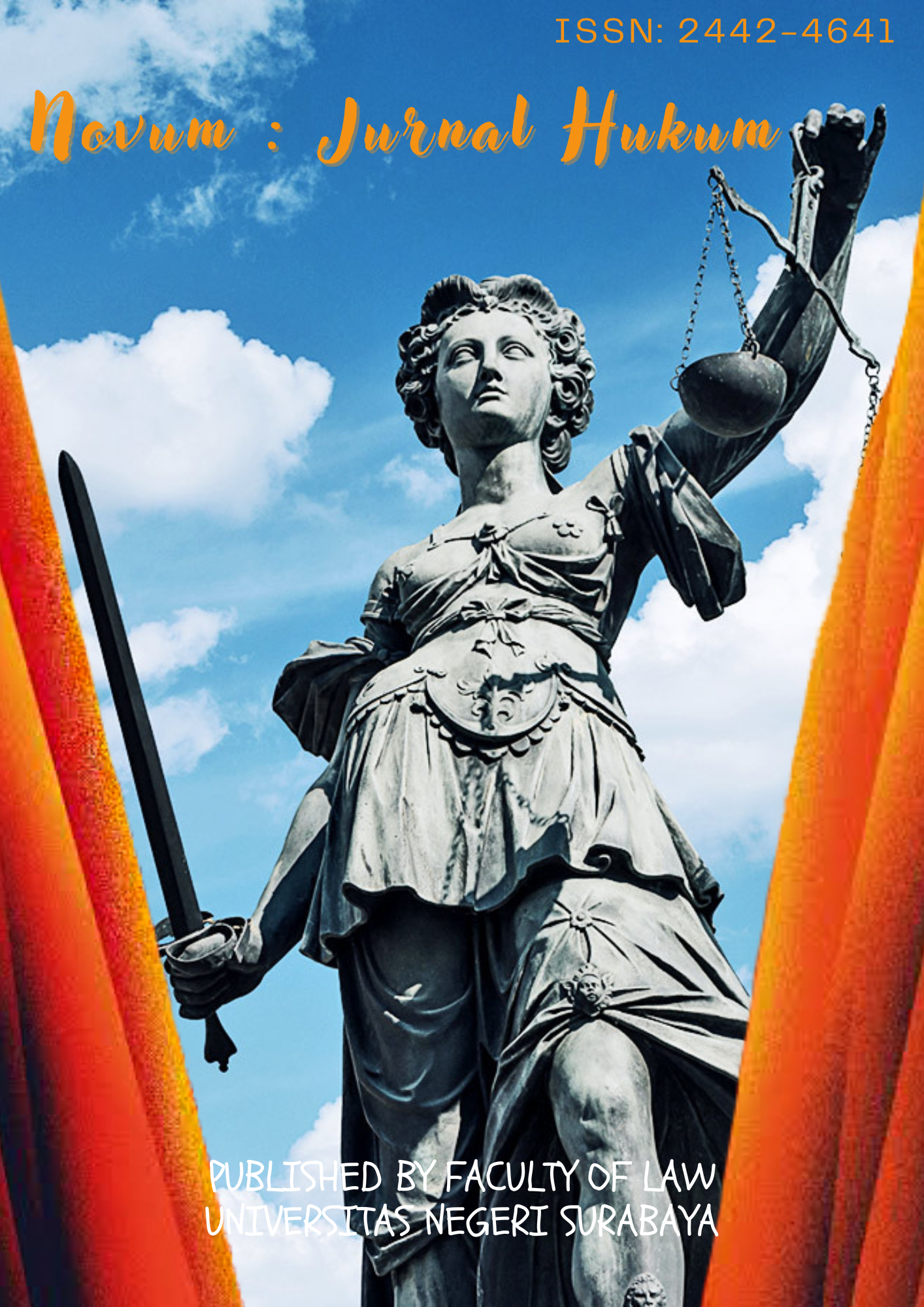ANALISIS PUTUSAN MAHKAMAH AGUNG NOMOR 111 PK/TUN/2017 TENTANG SENGKETA INFORMASI PUBLIK ANTARA PEMERINTAH KOTA SURABAYA DENGAN WAHANA LINGKUNGAN HIDUP (WALHI)
DOI:
https://doi.org/10.2674/novum.v7i1.31168Abstract
WALHI East Java submitted a request for information to the Surabaya City Government related to the conversion of the Sepat Reservoir land but was not given a response so it was brought to the East Java KIP Commissioner and granted with the Decision of the East Java Provincial Information Commission Number: 100 / II / KI-Prov.Jatim-PS- AMA / 2016. The Surabaya City Government filed an objection to the KIP decision to PTUN and Kasasi but the effort strengthened the KIP decision. The Surabaya City Government then submitted a Review and in its decision No. 111 PK / TUN / 2017 stated that they refused the request for reconsideration. Until now the Surabaya City Government has not implemented the court's decision by submitting the documents requested by WALHI East Java. The purpose of this study is (1) to analyze the basic considerations of judges in the Supreme Court decision No. 111 PK / TUN / 2017, (2) to find out the legal consequences of the Surabaya City Government that does not comply with the results of the ruling that oblige to provide public information related to the acquisition of sepat reservoirs and (3) find out what legal steps taken by Walhi over non-compliance with the decision of the Supreme Court. This study uses a statute approach, case approach and conceptual approach. The results of this study are that the consideration of judges in the Decision 111 / PK / TUN / 2017 is appropriate because it is in accordance with legal sources relating both formally through the Judicial Power Law, the Supreme Court Law, PERMA Regarding Procedure for Dispute Resolution at the Cassation Level and materially through the Public Information Openness Act. The legal steps that can be taken by the people of the Sepat Reservoir area are to submit a request to the Chief Justice to order the defendant to implement the decision. The Chair of the Court can summon the losing party and make a reprimand (aanmaning).
Keywords: Agreement, Leasing, Default, Compensation, InterestDownloads
 Abstract views: 180
,
Abstract views: 180
, PDF Downloads: 236
PDF Downloads: 236



